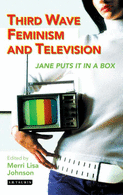 I’m late to this one, but just read Michiko’s review of Thirty Ways of Looking at Hillary. (Thanks, Heather!). Michiko writes, referring to Hillary’s teary moment the other week,
I’m late to this one, but just read Michiko’s review of Thirty Ways of Looking at Hillary. (Thanks, Heather!). Michiko writes, referring to Hillary’s teary moment the other week,
The 24/7 replaying of that moment on cable television…reminds us how relentlessly Mrs. Clinton has been dissected, deconstructed and decoded over the years: by now her marriage, her hair, her pantsuits, her voice and her laugh have been more minutely anatomized than her voting record on Iraq, her (mis-)handling of health care during her husband’s administration or her stands on Iran, Social Security and immigration. This willful focus on the personal is underscored by “Thirty Ways of Looking at Hillary,†an intriguing but highly uneven anthology of reflections about Mrs. Clinton by a spectrum of well-known female writers.
Michiko criticizes the book by noting that in these authors’ essays, Hillary’s actual résumé and record are largely shoved to the side. I’m still reading the book, so not yet weighing in on that one, but it’s an interesting point (and one I keep blogging about here). A few of the contributors submitted comments for the Hillary forum I’ve put together for More magazine (going live soon!), and I’m attending a lunch soon in celebration of the book. Very much looking forward. Promise to report on it here.








